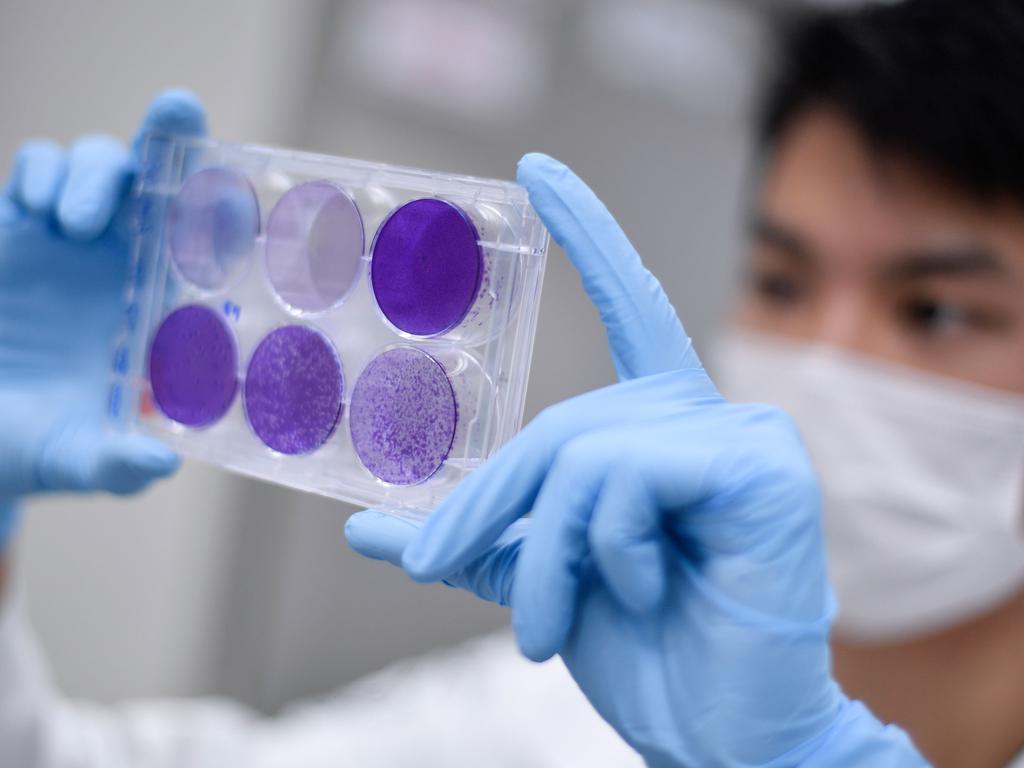‘Super vaccine’ could protect against COVID-19
Experts from the University of Cambridge say the MMR jab, which is generally presented to all infants from nine-months-aged, like in Australia, could be the reason why children are not as seriously impacted by COVID-19.
Creating in a new examine, the researchers said: “We hypothesise that MMR could defend towards very poor outcome in COVID-19 infection.
A lot more: Aussie virus fatalities increase as Trump stops immigration
Check with the gurus: assistance for vulnerable clients
China assaults ‘parrot’ Dutton
“We hence propose that vaccination of at-possibility age teams with an MMR vaccination deserves further more thought as a time-suitable and protected intervention.”
Their revelation arrives as trials are beginning to see if the BCG injection, presented to lots of Brits to reduce TB but which is not utilised in Australia, can also defend towards coronavirus.
The Cambridge researchers made their recommendation about the MMR jab following analysing the framework of MMR viruses.
They found that the “spike protein” of SARS-CoV-2 is twenty for every cent similar to the measles “fusion protein”.
NED-1528-COVID-19-new-circumstances
In other news British isles Health and fitness Secretary Matt Hancock said that a prospective jab which has been made by Oxford University will get started staying examined in just two days.
“I can announce that the vaccine from the Oxford job will be trialled in men and women from this Thursday,” Mr Hancock said.
“In regular times, achieving this stage would just take yrs and I’m extremely happy of the get the job done taken so much.
“At the identical time, we will commit in manufacturing functionality so that if possibly of these vaccines safely get the job done, we can make it readily available for the British men and women as quickly as humanely probable.”
Professor Sarah Gilbert, who is primary the Oxford group, said that a vaccine could be readily available for use by the basic general public by the northern autumn.
She said: “Personally, I have a high diploma of assurance. And, I believe, it has a extremely powerful chance of working.”
Relevant: Malaria, HIV drug accepted for COVID-19 trial
Mr Hancock said the procedure for locating a vaccine would just take “trial and error” but he has explained to British isles researchers primary the lookup he would “back them to the hilt and give them just about every source they need” in order to triumph.
“After all, the upside of staying the 1st place in the globe to produce a thriving vaccine is so enormous that I am throwing all the things at it,” said Mr Hancock.
In the meantime, as countries grapple with the difficulty of applying much more and more quickly testing to reopen their economies, to velocity up the testing procedure and defend lab employees, a software program and robotics organization is primary an effort to produce a robotic program that can procedure COVID-19 examination samples with very little human involvement.
Automating the lab testing procedure would also allow for testing to be done 24/7, drastically growing the volume of tests done for every working day, in accordance to the organization.
“I’ve been a section of tasks where by men and women believe ‘robots are trying to just take my career,’ but in this scenario it is seriously conserving life,” said Hagai Bar, program engineer at Shiny Devices.
“You’re just replacing all that unneeded manual get the job done.”
“This job seriously highlights the relevance of automation in manufacturing in basic, and in the healthcare discipline specifically. Redundant, risky manual labour is eradicated. And robots really do not get tired and really do not make errors – testing labs can function around the clock.”
No 1 can say for certain how the pandemic will unfold, but our life will surely be improved for the foreseeable foreseeable future.








